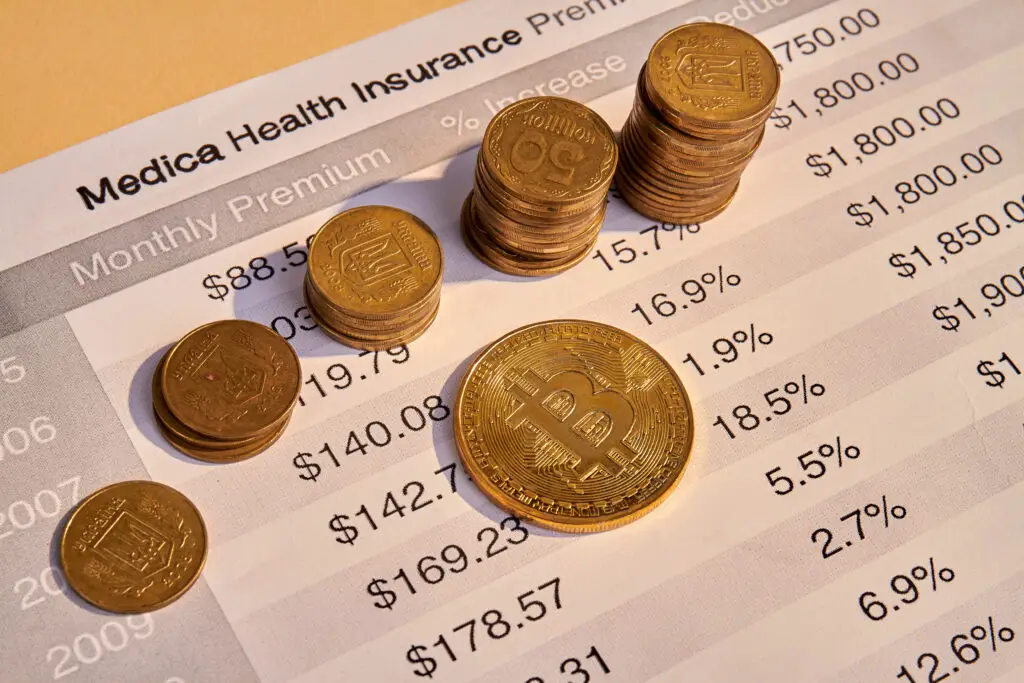What Happens When Medical Bills Go To Collections?
We often overlook the importance of good health while faced with everyday troubles and you only start realizing this in case something goes wrong. Hopefully, you’ll get well and heal, but then the reality hits you – your medical bills start piling up.
Of course, it shouldn’t be your primary focus when healing, but consumers often fail to inquire about the total amount that needs to be paid to the medical provider. In the case of delinquency, the big question is – what happens when medical bills go to collections?
When medical bills go to collections, the collection account gets added to your credit report as a negative mark that lasts up to 7 years.
Thankfully, it’s not like a regular collections account, so this guide will tell you how to cope with it.
What Are Medical Collections?
A medical collection is an unpaid medical debt that the service provider sells to a collection agency. It seems like a regular collection account – the creditor “gives up” on your debt account, and it gets charged off.
At that point, the collection agency buys your debt, so they hold the rights to your payments from that moment on. The same happens with medical debt, only this time you’ll have a bit more convenient approach due to consumer protection law.
Namely, in the case of a medical debt sold to a collection agency, you’ll have 180 days to repay the debt and it won’t reflect on your credit report.

Also, a new regulation was passed down in July 2022, and it even states you have a full year to repay the debt before it reaches collections. You can check the grace period with your medical provider just to be sure.
Either way, this gives you a significant advantage when compared to regular accounts that go into collections.
If you fail to pay even during the grace period, the collection account might appear on your credit report. This is the worst scenario since the collection then stays on your report for up to seven years.
It hurts your credit scores as well, so it’s always best to pay if you can to avoid the collection affecting your creditworthiness for future loan applications.
Moreover, the collection account will stand out on your credit reports separately from the initial charge-off by the medical facility. Ultimately, you’ll be dealing with the consequences of two negative marks on your report for the same debt.
Updates To The Consumer Protection Law
You shouldn’t face any sort of debt unprepared, and the same goes for an unpaid medical bill. Healthcare debt is truly something you can’t expect, so it’s a good thing that consumers can now benefit from new and convenient regulations.
The updates to consumer protection laws that were made in July 2022 now allow you to have a full-year grace period before the debt reaches collections.
More importantly, your medical debt collection can be removed from your credit reports once you pay off the debt. This is a big thing since regular collections can hardly ever be removed unless the 7-year period has passed.
Regularly, you could expect the status of the collection account in your reports to change from “unpaid” to “paid”. That alone still benefits your creditworthiness, so it’s always a good sign if you can pay your collection accounts.
With the new regulation, it gets even better as you won’t have to think about the collection changing status – it won’t even be on your report.
Another important addition to the regulations starts on January 1st, 2023. At this point, any medical debt that’s below $500 can’t appear on your credit report in any form.
So, credit bureaus won’t show your unpaid medical bills up to this amount on any of your credit reports.
The Impact Of Medical Debt On Your Credit Report
If you, unfortunately, have a medical debt higher than $500 and you can’t repay it within the grace period, it will stay on your report as a collection account even with the new regulations.

Don’t worry though – it’s a common thing since over 100 million adults in the US have medical debt. I know, it’s a big number, and healing comes first for the most part. The important thing is that you come prepared once the time comes to deal with this debt.
So, you have to know how medical debt collections will affect your credit score. If you can’t pay, the negative item will stay on your credit report for 7 years, even if you have a lower-scale payment plan.
There have been many cases of consumers trying to pay off their medical debt with lower monthly payments, just to get the debt reported as collections regardless of the payments.
You’ll need to approach your medical providers and inquire about the total debt sum that needs to be paid and make the according payments.
If you can’t, your credit score could drop by around 100 FICO points. However, there’s no telling how exactly this will reflect in your credit scores.
A medical debt collection reported by credit bureaus is still considered a missed payment listing. Your payment history makes up 35% of your total credit rating.
So, even a single collections account that appears on your report can reduce your score, requiring years to repair it. The only good thing is you can have it removed from the report as soon as you repay the debt.
Dealing With Medical Bill Collections
The first thing you should do when dealing with a late medical bill payment is to get in touch with your insurance company and the medical institution to confirm your debt.

Once you figure out the exact debt amount, it’s easier to come up with a payment plan. The debt collector might not always inform you adequately regarding your total debt.
Make sure to have the debt amount confirmed and in writing, and refer to the Fair Credit Reporting Act. According to this act, you have the right to ask for debt validation within 30 days from the date when collection appears on your report.
Confirming the debt amount with your medical provider and a collection agency is just the first step, and there are many other things you can do to deal with the collection account.
Negotiate Repayment Terms With Collectors
Collection agencies are for-profit organizations, which means they claim the rights over your debt at a convenient price. So, it should be possible to renegotiate the payment terms with the collectors.
You can freely approach them and ask for a lower lump-sum payment in exchange for your collection being reported to bureaus as paid.
This is where the new regulation kicks in as it states that your collection account will be removed from credit reports as soon as the collectors report it as paid.
If you can’t afford a lump-sum payment, you can at least negotiate a payment plan with the collectors and still pay a bit less than you regularly would have.
File A Credit Dispute
In case collectors can’t validate your debt within 30 days of receiving a collection account notice, the item should be removed from your report.
You also have the right to file a credit dispute under the Fair Credit Reporting Act. If the medical debts can’t be validated and confirmed with the initial debt holder, collectors will likely stop trying to collect.
Filing a dispute can also help in case you have a paid medical debt still showing up on your credit reports in the form of a collection. As passed down by new regulations in July 2022, any paid medical debts should be removed by the three credit bureaus and shouldn’t affect your report or scores.
Check The Legitimacy Of Your Debt
The sad thing is that there have always been scam collection agencies that try to make you pay medical debt for higher than it was initially listed. So, you should check your medical collection accounts and the original debt value with the healthcare provider.
Try to examine your medical bills and confirm the amount of unpaid medical debt. This can help you file a complaint, especially in case of a No Surprises Act violation.
The No Surprises Act states that you have to be notified about medical expenses before receiving care.
If the amount of unpaid medical bills is $400 or higher above the amount you were notified of before receiving the treatment, you can file a complaint.
It’s possible to reach out to the Centers for Medicare & Medicaid Services in case the act has been violated.
Consult Your Health Insurance Company
You should also reach out to your health insurance company to inquire about their coverage of your medical expenses.

Perhaps the collection account in your consumer credit reports has been a result of a misunderstanding between the insurance company and the care provider.
Make sure to understand what kind of medical bills the insurance covers to avoid confusion when dealing with medical debt collections.
Discuss A Repayment Plan With Your Medical Provider
The best case scenario would be to prevent your medical debts from influencing your credit scores as a collection account. To do that, you should be in touch with your medical provider and try to negotiate a repayment plan.
Of course, you can’t postpone the payments for years, or the provider will still sell the account to collections. Instead, try to make a plan with lower-amount payments on a monthly basis.
If you can’t manage a plan yourself, you can try hiring a billing advocate. They will reach out to medical institutions and negotiate the repayment terms on your behalf, so you might end up with a manageable payment plan after all.
Medical Debt Settlement As The Last Resort
If you can’t afford to pay the collection account and have it removed from your report, the last option is to engage in debt settlement with the collectors. It means paying a significantly lower amount as a lump sum and having the debt listing resolved.

However, debt settlement also appears on your report, and it’s a negative mark as well. It lets future creditors know that you weren’t able to pay your medical bills in full, so it also affects your creditworthiness.
The good thing is that your report won’t show unpaid medical bills, which is a good sign for your payment history.
On the other hand, the mark on your credit reports still lasts for up to seven years, and it only gets removed once that period has passed.
However, the good thing is you can expect to settle for a far lower amount than your initial debt amount. So, it’s a good way of preventing collections and affecting your credit reports if you don’t have any way of repaying the full medical debt amount.
Final Thoughts
Ultimately, this guide should have helped you with the matter of what happens once your medical bills reach collection agencies. It’s a relief that you can at least have the collection listing removed from your credit reports as soon as you pay it off.
However, it still takes reaching an agreement with the collectors and paying the debt as soon as possible if you wish to avoid it negatively reflecting on your credit scores.
Make sure to validate your medical bill debt as soon as you receive notice of the account reaching collectors so you can make the best repayment plan.
Frequently Asked Questions (FAQ):
Do medical bills in collections ever go away?
Yes, medical bills in collections go away after 7 years have passed from the date the account was reported as a collection on your credit reports. However, the new regulation passed down in July 2022 lets you remove the medical bill collections even before that. To achieve this, you’ll need to repay the debt and clear the account, and it won’t be reported as a collection anymore.
Will my credit be affected by medical bills sent to collectors?
Yes, your credit scores will be affected by medical bills being sent to collectors. You can expect a decrease in your credit score at the same level as if you had a regular collection account on your credit reports. However, the difference is that paid medical bill collections are now removed from your credit report. On the other hand, collections caused by other kinds of missed payments just change the status to “paid”, but stay on your credit reports.
Can you dispute medical bills on your credit report?
You can dispute medical bills on your credit report in case there has been a violation of the No Surprises Act, and the reported medical debt amount is higher by $400 or more than the initial debt amount. You’ll have 30 days to dispute medical bills that went to collections upon receiving the notification.
Do medical bills affect your credit score in 2022?
Medical bills still affect your credit score in 2022, but new updates to the regulation regarding medical bills going to collections give you a full-year grace period during which you can repay the debt to prevent it from reaching collectors. Also, the debt won’t be reported as a collection once you pay it, and starting from January 1st, 2023, any medical debt below $500 won’t affect your credit score.



